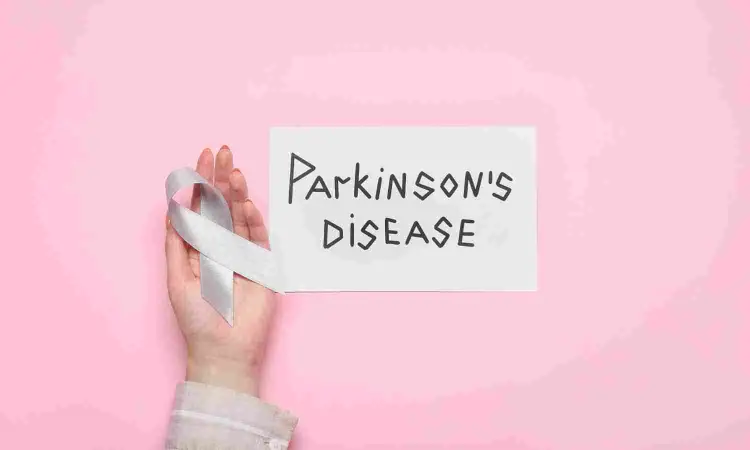- Home
- Medical news & Guidelines
- Anesthesiology
- Cardiology and CTVS
- Critical Care
- Dentistry
- Dermatology
- Diabetes and Endocrinology
- ENT
- Gastroenterology
- Medicine
- Nephrology
- Neurology
- Obstretics-Gynaecology
- Oncology
- Ophthalmology
- Orthopaedics
- Pediatrics-Neonatology
- Psychiatry
- Pulmonology
- Radiology
- Surgery
- Urology
- Laboratory Medicine
- Diet
- Nursing
- Paramedical
- Physiotherapy
- Health news
- Fact Check
- Bone Health Fact Check
- Brain Health Fact Check
- Cancer Related Fact Check
- Child Care Fact Check
- Dental and oral health fact check
- Diabetes and metabolic health fact check
- Diet and Nutrition Fact Check
- Eye and ENT Care Fact Check
- Fitness fact check
- Gut health fact check
- Heart health fact check
- Kidney health fact check
- Medical education fact check
- Men's health fact check
- Respiratory fact check
- Skin and hair care fact check
- Vaccine and Immunization fact check
- Women's health fact check
- AYUSH
- State News
- Andaman and Nicobar Islands
- Andhra Pradesh
- Arunachal Pradesh
- Assam
- Bihar
- Chandigarh
- Chattisgarh
- Dadra and Nagar Haveli
- Daman and Diu
- Delhi
- Goa
- Gujarat
- Haryana
- Himachal Pradesh
- Jammu & Kashmir
- Jharkhand
- Karnataka
- Kerala
- Ladakh
- Lakshadweep
- Madhya Pradesh
- Maharashtra
- Manipur
- Meghalaya
- Mizoram
- Nagaland
- Odisha
- Puducherry
- Punjab
- Rajasthan
- Sikkim
- Tamil Nadu
- Telangana
- Tripura
- Uttar Pradesh
- Uttrakhand
- West Bengal
- Medical Education
- Industry
Intensive voice treatment more effective than NHS speech therapy for Parkinson's disease, suggests study

An intensive voice treatment developed in the USA and known as the Lee Silverman voice treatment (LSVT LOUD) is more effective than conventional NHS speech and language therapy or no therapy for people with Parkinson's disease, finds a trial published in The BMJ today.
The researchers say the results emphasise the need to optimise the use of speech and language therapy resources for people with Parkinson’s disease.
Slurred or slow speech (known as dysarthria) is a common feature of Parkinson’s disease and can have a significant effect on communication, potentially leading to stigmatisation, social isolation, and reduced quality of life.
NHS speech and language therapy or Lee Silverman voice treatment (LSVT LOUD) are two approaches available in the UK, but evidence of their effectiveness is inconclusive.
To address this, researchers set out to assess the clinical effectiveness of these two speech and language therapy approaches versus no therapy for dysarthria in people with Parkinson’s disease.
Their findings are based on 388 people with Parkinson’s disease and dysarthria (74% male; around half aged 70 or older) who were randomly assigned to one of three groups from September 2016 to March 2020: 130 to LSVT LOUD, 129 to NHS speech and language therapy, and 129 to no speech and language therapy.
LSVT LOUD consisted of four, face-to-face or remote, 50 min sessions each week delivered over four weeks, plus home based practice activities (5-10 mins daily on treatment days and 15 mins twice daily on non-treatment days).
NHS speech and language therapy sessions were determined by the local therapist in response to the patients’ needs (average of one session per week over six to eight weeks).
All participants self-reported a voice handicap index score at three months - a measure of the impact of communication difficulties on a scale from 0 to 120 (a low score being positive).
For patients who received LSVT LOUD, voice handicap scores were 8 points lower (ie, better) at three months than those who did not receive speech and language therapy and were nearly 10 points lower than those who received NHS speech and language therapy.
There was no difference in voice handicap scores between NHS speech and language therapy and no speech and language therapy.
Some 93 adverse events (predominantly vocal strain) were reported in the LSVT LOUD group, 46 in the NHS therapy group, and none in the no therapy group. No serious adverse events were recorded.
Voice handicap scores at six and 12 months were similar to those in the main analysis. A clinically meaningful benefit was also seen in quality of life related to communication for patients receiving LSVT LOUD.
The researchers point to some trial limitations. For example, most participants were in the early stages of Parkinson’s disease with mild speech impairment, which may not reflect all people with Parkinson’s who need speech and language therapy. Trial blinding was also unfeasible, which may have influenced the results.
Nevertheless, they conclude: “This randomised trial provides evidence to guide clinical decision making, emphasising the need to optimise the use of speech and language therapy resources for people with Parkinson’s disease.”
This trial shows convincingly that LSVT LOUD is the most clinically effective speech treatment for this patient group, say experts in a linked editorial.
However, they point out that the intensive nature of LSVT LOUD treatment poses access issues and has implications for service delivery, and they say further research is needed to support patients for whom LSVT LOUD is unsuitable.
“The challenges posed by this trial include how to ensure that resource limited health systems can implement effective evidence based innovation, and how patient groups can best advocate for this with health system decision makers,” they conclude.
References; BMJ 2024; 386 doi: https://doi.org/10.1136/bmj-2023-078341 (Published 10 July 2024) Cite this as: BMJ 2024;386:e078341
Dr Kamal Kant Kohli-MBBS, DTCD- a chest specialist with more than 30 years of practice and a flair for writing clinical articles, Dr Kamal Kant Kohli joined Medical Dialogues as a Chief Editor of Medical News. Besides writing articles, as an editor, he proofreads and verifies all the medical content published on Medical Dialogues including those coming from journals, studies,medical conferences,guidelines etc. Email: drkohli@medicaldialogues.in. Contact no. 011-43720751


